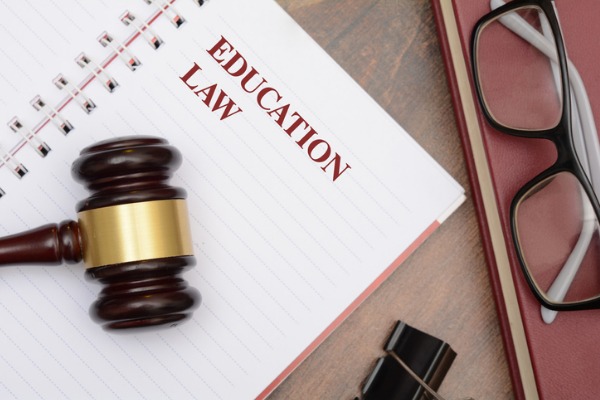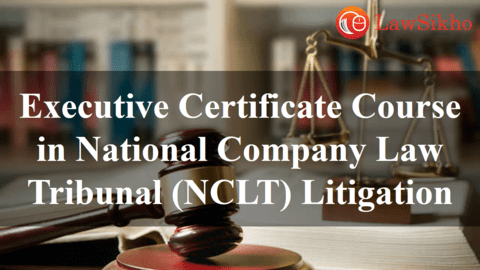This article is written by Niharika Agrawal, pursuing B.B.A.L.L.B from IFIM Law School. This article deals with various challenges to legal education, especially in two-tier law schools as compared to national law schools and other famous private schools, and the measures to overcome such a gap.
Table of Contents
Introduction
Amid the rising population of India, the huge competition among the professions has also increased. One such profession is the legal profession, in which every student pursuing legal education dreams to be a part of a National Law school or a topmost private law school. But the capacity of these institutions cannot fulfill the dream of every legal student. These students, therefore, are compelled to get admitted to the other law schools that are also known as two-tier or three-tier law schools. The answers to questions such as why are these institutions not like national law schools and other top institutions, what are the facilities they are lacking, and what steps can be taken to remove these gaps are discussed in the article. This article contains brief knowledge about legal education and its challenges in India.
The objective of legal education
- To educate and develop perceptions and understanding of the local and global environments and also the problems of society.
- To make use of the total education system to generate the kinds of skills and knowledge for enabling the tasks in the society.
- To expand the opportunity and mobility in the society, especially among the group of people who were deprived earlier.
- To increase research skills and their value in education and society.
- To use more sophisticated methods in budgeting, managing, and evaluating programs.
Challenges in legal education
The legal profession is one such profession where the development of practical skills is more important than theory. The very common mode of this exposure in law schools is through internships, moot courts, and competitions. But here are some challenges that are being obstacles to the success of law students at a large scale in India.
Moot courts
This is one of the most important practices that need to be provided to every law student. Mooting is a practical experience of court procedure rather than mere knowledge. Limitations of participation in moot courts leave the student too far behind the scope. The difference between renowned law schools and two-tier law schools arises in this challenge: The moot court teams of 2nd and 3rd tier law schools do not have a proper system of guidance, that is through tutorials or mentors, while the renowned law school such as national law school and other private schools have the heritage of mooting. While 2nd and 3rd tier law school students also have experience in mootings, that may not be sufficient to win the competitions. Several moot courts focus on international scenarios and the laws that many practicing legal professionals may not encounter as practitioners. International mootings need more training to reach the level of competition with the students in developed countries. This is another challenge for the students in law schools.
Internship
The internship is the best way of gaining practical experience and professional skills and it also helps in deciding the interest and future career of the law student. It is not only important for legal education but is also important for every other field. Some students have a lack of basic formatting, research, and presentation skills due to which the lawyers are not willing to engage them as interns. These basic skills are expected to be taught in law schools themselves while practicing can be done through internships. Hiring an intern with a lack of elementary professional skills and subject knowledge skills may cause a burden on a legal practitioner. Thus, the other law schools need to provide efficient basic skills before enrolling them for internships. This may affect the reputation of law schools as well.
Technology
Enhanced technology has also changed the field of education drastically. The absence of use of advanced technology is one of the major challenges in legal education. In the small town college, the use of such advanced technology is very little. This is something that affects the quality of legal education. It is very important to have the knowledge and learn to use such technology. It makes the drafting task very easy and also saves lots of time. In the legal profession, the use of advanced technology, tools, and techniques skills is required in MS Word, Excel, Grammarly, Google Keep, Google Calendar, etc. for scheduling meetings and reminders. Applications like Google Docs also help in making it more interactive and interesting for students.
Lack of research
Legal methods are one of the most important subjects in legal education that have become mandatory for all the legal courses in all colleges. It gives a brief idea about types of research, methods, and other important aspects of research. This course needs some improvisation. Such improvement in legal research methods and instructions may give rise to rapid acceleration and the kinds of legal research materials that are being produced. This is why the legal education system is lagging. The next issue that comes up in the legal education system in India is the lack of researchers in law and the absence of due emphasis on research and publication in existing law schools. Good research also helps in improving teaching and addressing various queries relating to law and orders. The common quality in the topmost profile of the faculties is great emphasis on research and publications among academics. It is however lagging somewhere in the other law schools.
Infrastructure
Law schools, especially in small cities, do not have proper well-developed infrastructure and systems for training law students as in national law schools and other private law schools. The rapid increase in the legal profession failed to have careful planning and growth. The basic intention of small-town law school students is just to get a degree and get access to the profession to earn their bread and butter. The private bodies established many law schools without any proper infrastructure, staff, books in the library, etc. Many law schools do not fulfill the criteria of infrastructural requirements as set forth by the BCI and are approved by them. The physical infrastructure is never sufficient enough to accommodate all the students. Thus, this encourages the private bars to establish more such law schools without any proper infrastructure.
Teaching faculties
It is very important to have well-qualified and experienced faculty who can resolve all the queries and can be the best mentors for legal students. The colleges that possess a sole profit motive do not intend to spend much on faculties, due to which, many teachers in such law schools are not qualified up to the mark and work part-time. Such faculties are unable to pay much attention to the teachings and other associated activities. Legal education is two-way communication. It needs dedication from both ends, that is, from teachers as well from students. Thus, it requires full-time or permanent faculty.
Also, often changing of faculties for a particular subject may cause several doubts and queries among the students. Some colleges do not have appropriate eligibility for the appointment of faculty, rather, the number of years of experience is considered as the relevant factor for appointing them. Sometimes teachers are ready to teach at low prices but this causes the greatest casualties to legal professionals and quality legal education. Even after several recommendations and suggestions, the methods of teaching in most of the colleges remain the lecture methods.
Measures to be taken
Support to practical training
Legal education needs to transform from theoretical methods into practical methods. The attendance criteria should be made flexible so that some internship programs can be arranged and the students can first have the knowledge of some theory and law and then can apply the same in real-life scenarios. But this is all possible if they are allowed to go for long-term internships so that they can have their command on technicalities involved in the legal matter and would know how to apply in situations.
Training on the use of technology and social media
Professors and students must be provided with proper training as to how to use the enhanced technology that is available to simplify and fasten things. For example, the enhanced use of MS Word to track changes, table of contents, advanced bulletin techniques, which are useful to drafting. Advanced use of PowerPoint presentation helps to explain the complexity in business transaction structures in an easy manner through diagrams, statics, etc. Google Keep and other tools help in making notes, preparing lists, and reminders. Google Drive and Asana enable people to collaborate power on complex projects. Video-making and editing tools can be used, such as Camtasia, Movie Maker, or Screencast-o-Matic, so that they can record videos explaining the law and its connection with stakeholders on various aspects. Students may communicate their thoughts through social media and blogging. This will not only make the learning process effective and simpler but also would help to make legal education available in every deepest corner of the country
Setting goals
Every law school should aim to train their students for bar examinations and further law practice. They should also set their educational goals and share them with their students. It is necessary to have continuous communication with academics, practitioners, judges, licensing authorities, and the general public and try to accomplish its goal. The primary goal of every law school should be to develop such a capacity that it can resolve all the legal problems effectively and responsibly. Every lawyer should have attributes of effective and responsible lawyers including self-reflection and lifelong learning skills, intellectual and analytical skills, professionalism, and core knowledge and understanding of the law.
Organizing and delivering a program of instruction
Law schools need to initiate various curriculum activities to develop knowledge, skills, and progressive value. They need to integrate teaching theories, doctrines and practice professionalism pervasively throughout the academics in law schools. They should try to achieve desired educational objectives and employ best practices while using any instructional methodology. They should also create and maintain a healthy environment for both the purpose of teaching and learning and should provide quality of their programs and technology. They should also organize programs and also learning centers for the development of faculties.
For example, NUJs has organized a new course for law students based on the relation between the fictional series of Harry Potter and laws. This has made the students think out of the boundary of academics and has also created different interests among them to do something. The course module has included legal tradition and institutions, crimes and punishments, and economy in Potterverse. Such courses are rarely seen in any serious law schools.
Assessing student learning
Law schools should initiate best policies to assess every student and their capabilities using criteria-referenced assessment, multiple formative and summative assessment, and other various methods of assessment. They should periodically conduct evaluation programs to evaluate their strengths and weaknesses. However, this may need lots of financial and timely resources but may provide some vision and may inspire more people to be committed to the implementation of positive changes.
Conclusion
These are the major reasons for increasing the gaps between national law schools and other private law schools. Theoretical teaching can only provide knowledge of the law, but the implementation of such laws can only be learned from practical training. Therefore it is necessary to provide long-term internships to all the legal students during their internships. This will also ensure that students get acquainted with practical aspects of the law. Some strict restrictions in the law schools such as attendance should be made feasible that may encourage the lawyers and trainers to train the students or interns better in conducting research work, writing research papers, and carrying out doctrinal research to discover something new in law.
Before advancing to the foreign international legal system, it is important to create a legal system that can skillfully deal with indigenous problems. Once there is a combination of technology, theory, research, and practice, the entire legal education system would be transformed, including improvements in the skills of both students and teachers, provided that such changes should apply to all the private law schools and universities, and not just to national law schools.
References
- https://www.franchiseindia.com/education/challenges-faced-by-the-legal-education-sector-of-india.11754
- https://www.academia.edu/11732382/Legal_Education_in_India_Current_Challenges
- https://www.legalbites.in/challenges-legal-education-21st-century/
- https://www.legalserviceindia.com/legal/article-76-legal-education-in-india.html
- https://www.livelaw.in/legal-education-looking-beyond-national-law-schools/
Students of Lawsikho courses regularly produce writing assignments and work on practical exercises as a part of their coursework and develop themselves in real-life practical skills.
LawSikho has created a telegram group for exchanging legal knowledge, referrals, and various opportunities. You can click on this link and join:
https://t.me/joinchat/J_0YrBa4IBSHdpuTfQO_sA
Follow us on Instagram and subscribe to our YouTube channel for more amazing legal content.
 Serato DJ Crack 2025Serato DJ PRO Crack
Serato DJ Crack 2025Serato DJ PRO Crack











 Allow notifications
Allow notifications


